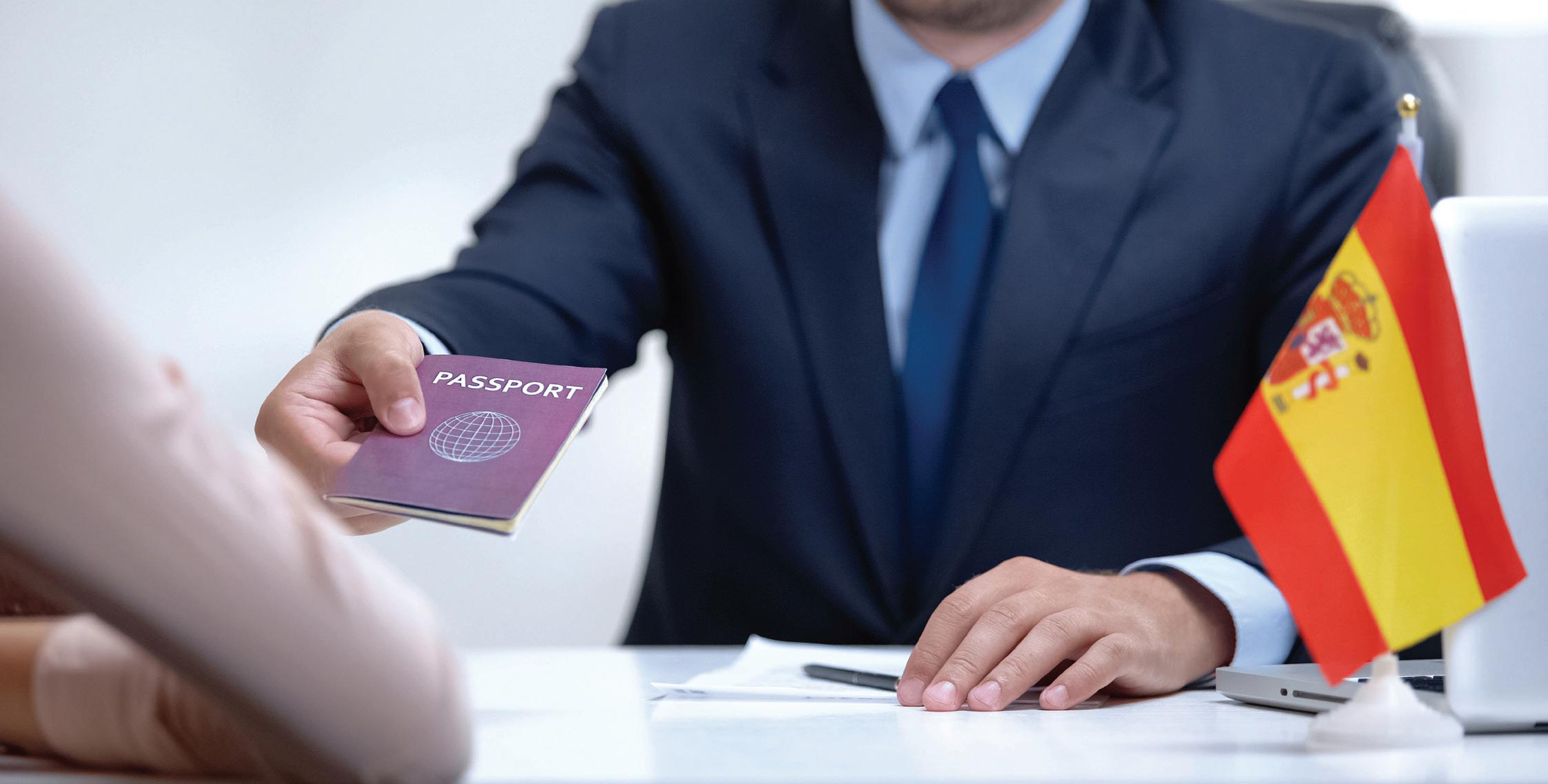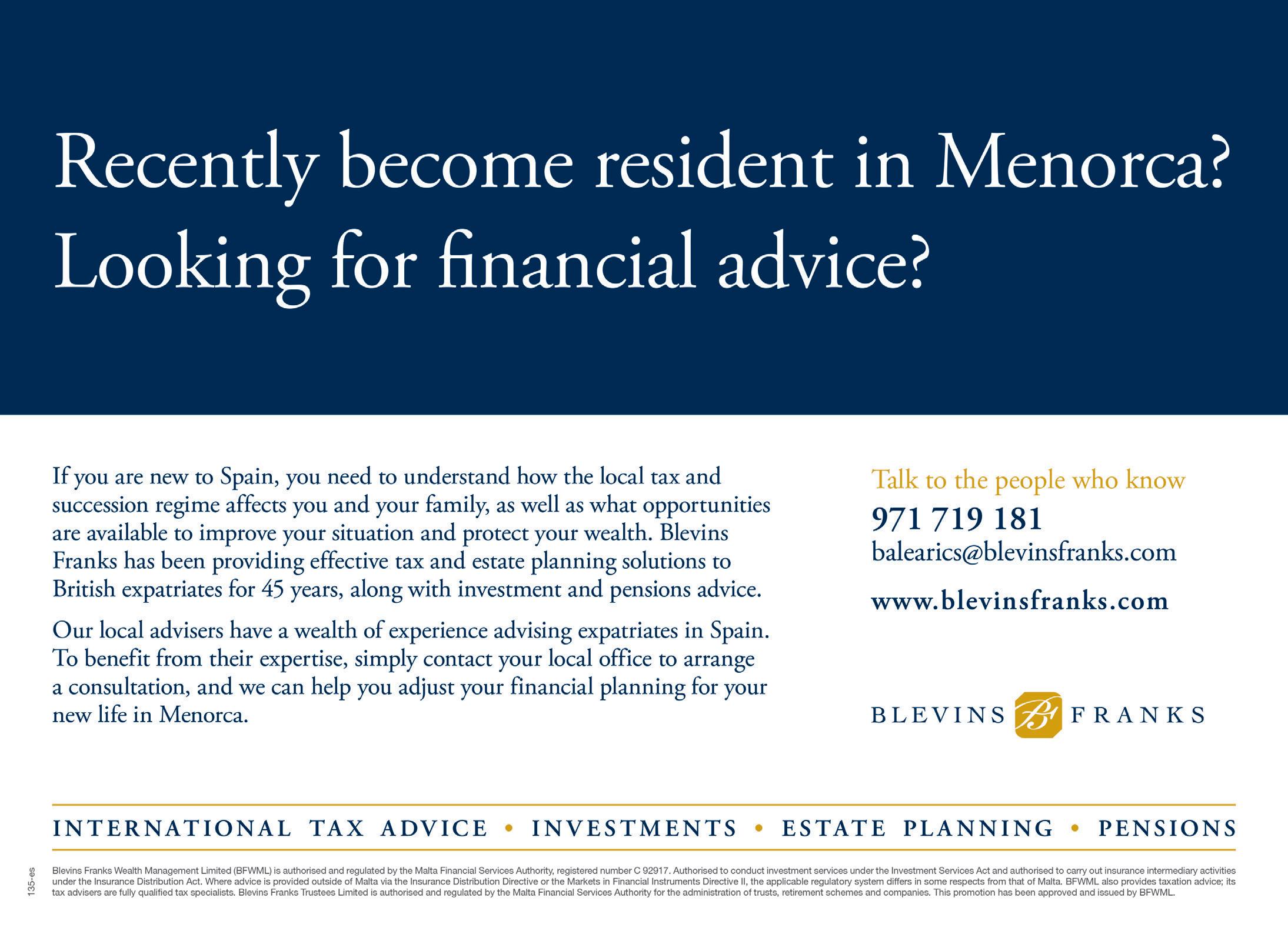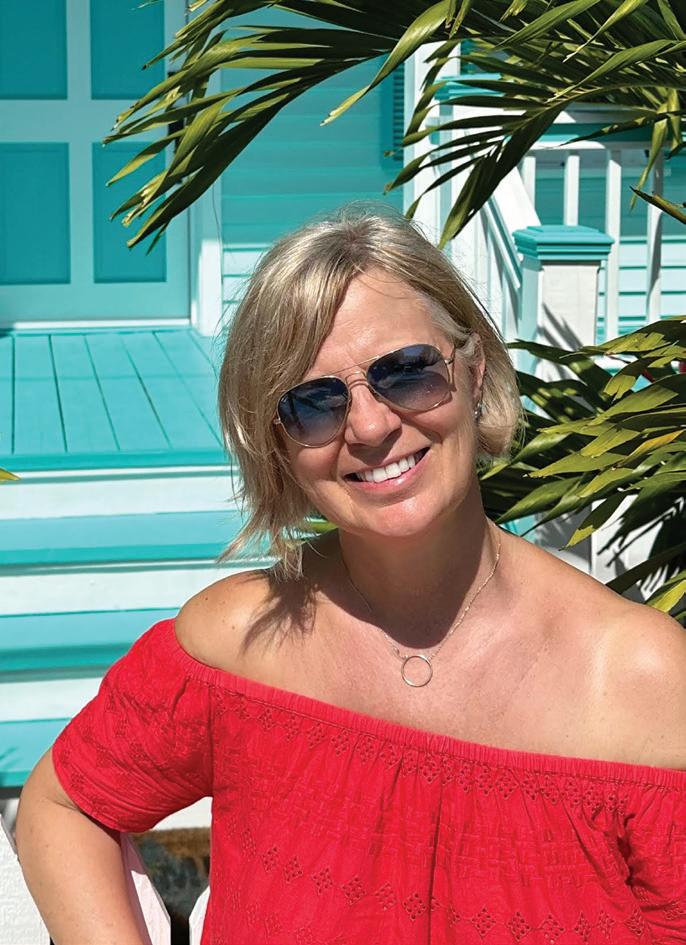
5 minute read
VISAS
OVER THE NEXT COUPLE OF MONTHS, WE WILL EXPLAIN THE POSSIBLE VISAS NOW AVAILABLE TO BRITISH AND OTHER NON-EUROPEAN UNION (EU) RESIDENTS. BELOW WE DISCUSS THE NONLUCRATIVE VISA (NLV) WHICH IS DESIGNED FOR RETIRED OR FINANCIALLY INDEPENDENT PEOPLE. NEXT MONTH WE WILL TALK ABOUT THE NOMAD OR TELEWORKERS VISA, A NEW VISA FOR PEOPLE WORKING REMOTELY FOR COMPANIES SITUATED OUTSIDE SPAIN.
Non-working (Non-Lucrative) residence visa
The 90-day rule in the Schengen Zone is a regulation that allows non-EU citizens to travel within the Schengen area without a visa for a maximum of 90 days within any 180-day period. This is a tourist visa, and you are not permitted to work.
The non-working residence visa or NLV allows British citizens who are retired or financially independent to live in Spain for a longer period if they do not need to work. To be eligible for this visa, applicants must show proof of sufficient financial resources to cover all living expenses in Spain, as well as proof of private health insurance. The visa requires the person to spend a minimum of 6 months in Spain.
The minimum amount of financial resources required is based on 400% of the IPREM (Public Multiple Effects Income Indicator). It is around €2,300 per month for the main applicant and an additional €580 per month for each dependent family member. This financial requirement can be met through various means, such as pensions, investments, or savings.
The non-working residence visa is granted for a period of one year and can be renewed annually if the applicant continues to meet the eligibility requirements. After five consecutive years of residing in Spain with this visa, applicants may be eligible to apply for permanent residency in Spain.
It is important to note that this visa does not allow its holders to work in Spain. If a visa holder wishes to work, they must apply for a separate work visa.
British citizens must apply for the non-working residence visa at a Spanish consulate in the UK. Applicants must provide all necessary documents and attend a visa interview. It is recommended to start the application process a few months before planning to move to Spain to ensure enough time for processing.
Once you visit Spain, you have one month to get your TIE card. You can also apply for Empadronamiento (confirmation of your official place of residence), although this is not obligatory.
In summary, this visa provides a viable option for those who wish to enjoy the relaxed Menorcan lifestyle in their retirement. It is a simpler process if you own a house in Spain. Otherwise, you must provide more paperwork regarding a rental contract.
There are benefits of the visa as there is no need to make an investment in Spain, you can enjoy free movement throughout the Schengen area, and you can bring spouses and children. However, you must seek tax advice on your individual situation.
Echeverria Abogados.com have a useful Blog on their website which covers the 6 risks to avoid when applying for a visa. One of them is failing to convince the official that you will spend 6 months in Spain due to financial inconsistency, family ties etc. You do not want to give the impression that you are only applying for the visa to gain free movement through the Schengen area!
Required documents for an NLV or non-resident Visa
1. National visa application form
2. Non-working residence visa application EX-01 form
3. Passport sized photograph.
4. Valid, unexpired passport.
5. Proof of financial means. If you are of working age, you will need to prove receipt of a pension or provide a termination letter from your employer stating that you will no longer work for that company or, in case of selfemployment, you will need to provide an affidavit before a Notary stating that you agree not to work while residing in Spain.
In the case of retirees, the applicant must be a beneficiary of a state pension in convertible currency or be a beneficiary of a life annuity.
Foreign documents must be legalised or apostilled and, where applicable, must be submitted together with an official translation into Spanish.
6. Health insurance policy. This must be valid for 1 year and must cover all the beneficiaries of the visa for the risks insured by Spain’s public health system. No travel insurance with medical assistance coverage will be accepted.
7. Criminal record check certificate.
8. Medical certificate.
Case Study - Caroline Warne

So there seems to be a lot of documents needed, but how easy is it in practice to apply for a Non-Lucrative, or Non-Residence, Visa. We spoke to Caroline, who recently went through the process successfully. She is a retired nurse from the UK and owns a house in central Mahon.
Caroline started to gather together all the required documents in October 2022. She then applied online for the appointment with the Consulate in November. She received an appointment at the Consulate in early January to take all the documentation, pensions, p45, deeds, bank statements, proof financial means, health insurance 4 x passport photos. Her visa was approved in early February.
When she arrived in Spain, she made online (CITA PREVIA) appointments at the Police station to take her fingerprints for her TIE and at the Town Hall for her Empadronamiento. She was told it would take around 2 months to receive the formal TIE card.
Caroline says she thinks it would have been possible to do the whole process herself through the Consulate Website. However, for reassurance and help, she used the services of Oriol Celestino Martinez at ICAB.cat, a professional company in Barcelona, at a cost of around €500. This company helped her with the translation of documents when required.
Caroline has a pension and to prove her income it was a simple case of putting money into the bank. For the Health Insurance, she took out a policy with Banca March for €125 Euros per month.
The Criminal check took the most time. Caroline used the ACRO - Criminal Records Office website https://www.acro.police.uk/ to complete the police form and to receive the Police certificate. ACRO then directed her to the Hague Apostlille website https://www.hagueapostille.co.uk/ for the certificate to be validated. This costs £72 per certificate.
For the medical certificate, you need to get an original copy from your GP . Caroline then used Zoomdoc.comMedical letters to receive a certificate of good health at a cost of £49. As part of this process, you make a video of yourself speaking, to show you are in good health, and then the certificate is sent through the post.
For proof of residence in Menorca, Caroline had the deeds to her house. She also needed a tax certificate to prove she was retired and a bank statement.


Once she had gathered all this information and paid the visa application fee, Caroline made an appointment at the Consulate. This is made according to where you live in the UK. Caroline received an appointment at the Manchester Consulate and took all her original papers. It was a simple process, and they did not retain her passport. This may not be the case at other consulates.
If you are applying for a NLV or a NOMAD visa it is very important to get independent tax advice on your unique situation. Each VISA requires you to stay more than 6 months in Spain. Once you have been in the country more than 183 days there will be tax implications in Spain and you must be sure you know how it will affect your finances.










